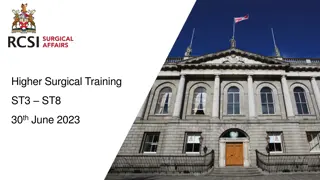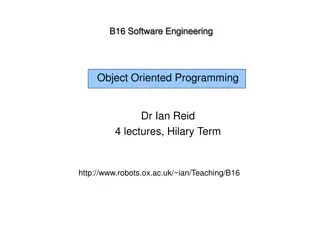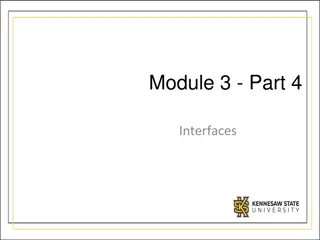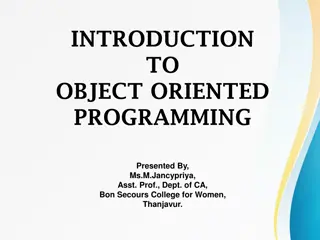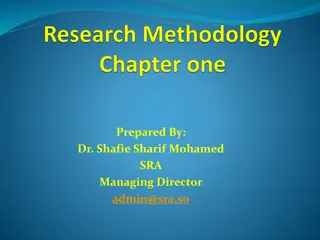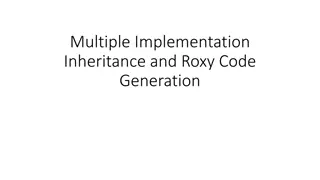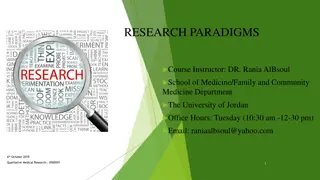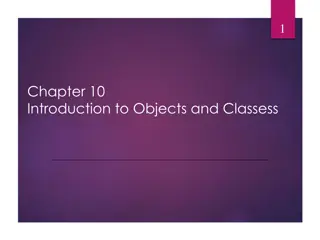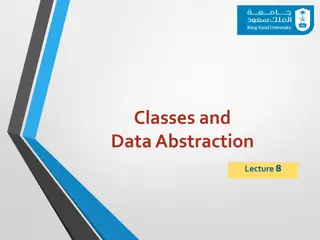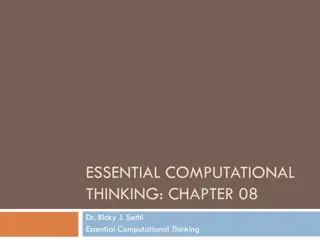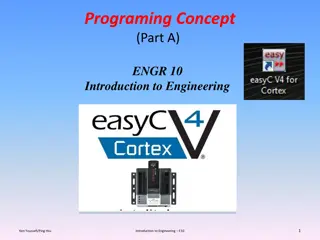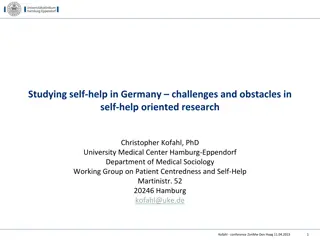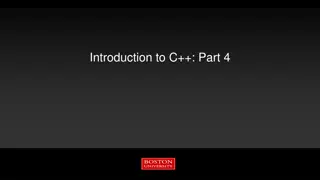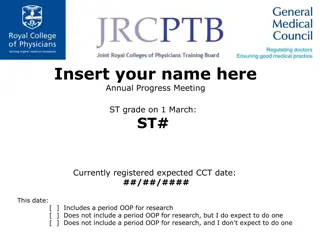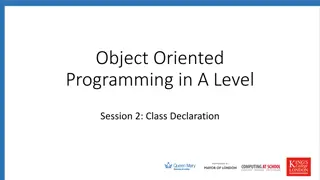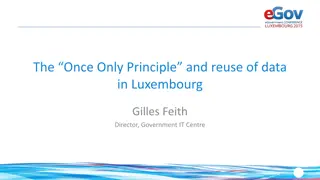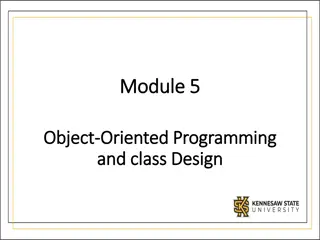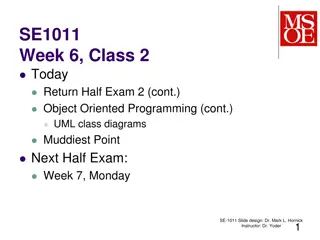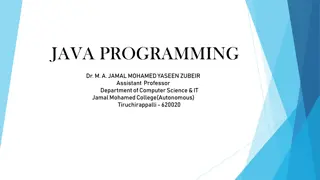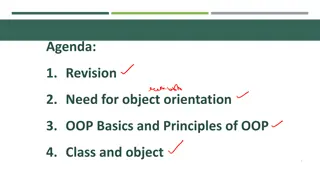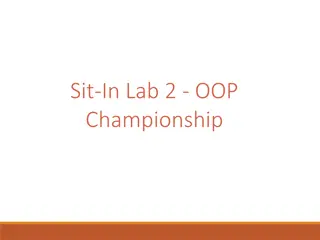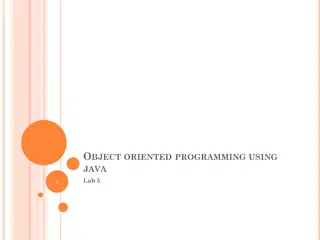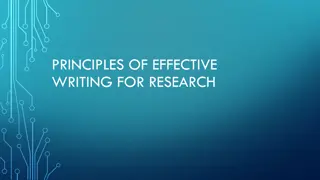Addressing Contemporary Challenges in Research Security Program Development
The Workshop to Inform Development of the Research on Research Security Program (RRSP) focuses on safeguarding the research enterprise amidst evolving global threats. Led by Dr. Rebecca Keiser and Dr. Shawna Cox, the program aims to balance security measures while maintaining an open and collaborati
3 views • 16 slides
UCC Research Support and Strategies Overview
UCC's Research Support, Policy & Strategy function, led by David O'Connell, PhD, provides comprehensive support for research activities at the university. The office manages research funding, monitors performance, and facilitates engagement with external stakeholders. UCC's involvement in Horizon Eu
3 views • 17 slides
Higher Specialty Training (HST) in Surgery: Oversight and Governance
Higher Specialty Training in Surgery provides a structured curriculum encompassing operative procedures, assessments, ARCP, OOP opportunities, research, examination, and the CCST. The program ensures competency progression, post-CCST fellowships, and adherence to governance standards set by organiza
0 views • 26 slides
Object-Oriented Programming in C++ with Dr. Ian Reid - Course Overview
Dive into the world of object-oriented programming with Dr. Ian Reid's course on C++. Learn about classes, methods, inheritance, polymorphism, and design patterns. Understand the principles of OOP and how to implement them using C++. Enhance your skills in data hiding, encapsulation, and templates.
2 views • 78 slides
Understanding Interfaces in Object-Oriented Programming
Interfaces in OOP provide a way for unrelated classes to share common methods without implementation details. They serve as a set of requirements that must be implemented by classes. By creating interfaces, we can enforce standards and avoid issues like the "Diamond of Death" problem that arises fro
1 views • 17 slides
Understanding Object Oriented Programming (OOP) Principles
Object-Oriented Programming (OOP) is a software design approach where programmers define data structures and operations. Key principles include objects, classes, data encapsulation, inheritance, polymorphism, and data abstraction. OOP allows for better organization and reusability of code, fostering
0 views • 15 slides
Effective Proposal Writing for Health Research
Learn about the fundamentals of research proposals for health-related studies, including defining research, understanding the purposes of health research, and exploring motivation for undertaking research. Discover the difference between basic and applied research, examine types of research, and del
1 views • 70 slides
Overview of Research Problem Identification and Formulation
Understanding the importance of defining a research problem, this content delves into the selection and formulation of research problems, the definition of a research problem, reasons for defining it, methods for identifying research problems, sources of research problems, and considerations in sele
1 views • 11 slides
Understanding the Essence of Research: A Comprehensive Overview
Research is a systematic pursuit of new knowledge, aiming to unveil hidden truths through data collection and analysis. This course outline delves into the fundamentals of research, covering topics such as types of research studies, importance of research, and distinctions between pure and applied r
2 views • 32 slides
Understanding Multiple Implementation Inheritance and Roxy Code Generation
Exploring the concept of software building blocks and concerns in Object-Oriented Programming (OOP), highlighting the importance of managing multiple concerns within classes. Delve into the challenges and solutions of multi-concern implementation including the use of mixins and plugin-based imitatio
1 views • 9 slides
Epic Tools for Clinical Research by Shara Power, RN, BSN, OCN
Explore Epic tools for clinical research developed by Shara Power, a skilled application developer specializing in EPIC Beacon Oncology at UIHC Healthcare Information Systems. Learn about managing research study records, investigational study medication orders, and the process for creating and using
0 views • 26 slides
Understanding Research Paradigms in Qualitative Medical Research
Delve into the world of research paradigms in qualitative medical research with a focus on the key differences between objective and subjective research, the meaning of research paradigms, components of research paradigms, types of research paradigms, and how paradigms guide the selection of researc
0 views • 42 slides
Guidelines for Selecting Research Project Topics in Environmental Health
Research is crucial for addressing environmental health issues. Choosing a good research topic is the first step towards effective research. This paper discusses the meaning, characteristics, types of research, and the research process to help in selecting appropriate research topics. Understanding
0 views • 15 slides
Comprehensive Research Training Programme in Social Sciences
Delve into the Research Training Programme offered by the Graduate School of Social Sciences, led by Professor Mark Tranmer. Explore the importance of research methods training, course offerings under the Research Training Programme (RTP), the Certificate in Social Science Research Methods (CSSRM),
5 views • 11 slides
Understanding Object-Oriented Programming (OOP) in Python
Python is a versatile programming language that supports various programming approaches. Object-Oriented Programming (OOP) is a popular method in Python where objects are created to solve programming problems. OOP in Python focuses on creating reusable code, following the principle of DRY (Don't Rep
1 views • 35 slides
Understanding Object-Oriented Programming Concepts
Object-oriented programming (OOP) is a powerful paradigm that helps in organizing and designing programs effectively. This summary covers key aspects such as designing a program, top-down structured design, the importance of OOD, defining objects, identity, state, behavior in OOP, and examples of st
2 views • 18 slides
Understanding Classes and Data Abstraction in Object-Oriented Programming
Object-oriented programming (OOP) encapsulates data and functions into classes, akin to blueprints for creating objects. This lecture delves into the relationship between classes, objects, data members, member functions, and user-defined types. It emphasizes the reuse and encapsulation of code, info
5 views • 22 slides
Introduction to Object-Oriented Programming in CS with RPG Example
Today's session focuses on introducing Object-Oriented Programming (OOP) and its concepts through a Role-Playing Game (RPG) example. The content covers the transition from Procedural Programming to OOP, encapsulating data in objects, and practical implementation with a hero, goblin, and multiple mon
0 views • 46 slides
Exploring Graphical User Interfaces (GUIs) and JOptionPane in Java
Introduction to Object-Oriented Programming (OOP) and GUI concepts in Java, focusing on GUI hierarchy, designing GUIs, working with containers and components, utilizing JOptionPane for graphical input/output, and examples of showMessageDialog and showConfirmDialog in Java applications.
0 views • 90 slides
Understanding Object-Oriented Programming (OOP) in Python
Object-Oriented Programming (OOP) is a programming paradigm that focuses on organizing code into objects with attributes and behaviors. Python supports various OOP concepts such as classes, objects, inheritance, polymorphism, abstraction, and encapsulation. Classes serve as blueprints for creating o
0 views • 29 slides
Understanding Object-Oriented Programming (OOP) Concepts in Chapter 8
Delve into the world of Object-Oriented Programming (OOP) through Chapter 8 of 'Essential Computational Thinking' by Dr. Ricky J. Sethi. Explore how classes and objects form the backbone of OOP, how messages are sent between objects, and the difference between regular and object reference variables.
0 views • 29 slides
Introduction to Computer Programming in Engineering
Computer programming in engineering involves breaking down tasks into small steps to instruct a computer. This process requires understanding programming languages such as C, C++, and Java, and concepts like Object-Oriented Programming (OOP). The sequential execution of expressions and the importanc
0 views • 36 slides
Icelandic Research Fund 2015: Enhancing Scientific Research and Education
The Icelandic Research Fund (IRF) aims to enhance scientific research and education in Iceland by awarding funding to research projects led by individuals, teams, universities, research institutes, and companies. Principal investigators must have completed graduate studies and experience in running
0 views • 22 slides
Challenges in Self-Help Research in Germany
Exploring the landscape of self-help research in Germany reveals various challenges and obstacles faced by researchers in studying self-help initiatives. The research delves into different aspects such as research scope, involvement of various groups, and the entities conducting research in this dom
0 views • 14 slides
Introduction to C++: Part 4 - Generics and Templates
Explore the concepts of generics and templates in C++, including syntax, compilation process, and utilization of the C++ Standard Template Library (STL). Learn about object-oriented programming (OOP) principles like encapsulation, inheritance, polymorphism, and abstraction. Discover the power of pol
0 views • 43 slides
Memorial University Research Strategies Overview
Memorial University's research strategies focus on attracting, retaining, and supporting researchers, fostering an environment of research excellence, engaging with community partners, and supporting fundamental and applied research. The university's strategic priorities include synergy in applicati
0 views • 11 slides
Annual Progress Meeting Summary for ST Career Progression
The annual progress meeting for ST grade on 1st March indicated the current status and expected CCT date. The presentation includes details on OOP for research, competence progression, and a snapshot of postings to date. Follow-up evidence documentation for this section is outlined in the subsequent
0 views • 38 slides
Object-Oriented Programming Basics for A-Level Students
Explore the fundamentals of object-oriented programming through class declaration, use of objects and methods, decomposition, abstraction, and more. Dive into topics like declaring classes, inheritance, polymorphism, and class diagrams. Gain insights into Python programming, modules, constructors, f
0 views • 35 slides
Implementation Status of the Once-Only Principle in European Countries
Insights into the adoption and implementation of the Once-Only Principle (OOP) in European countries, including findings, strategies, initiatives, legislation, and establishment of authentic sources to support data reuse. The data showcases the progress made by various countries in implementing the
0 views • 17 slides
Understanding Object-Oriented Programming and Class Design
Object-Oriented Programming (OOP) is centered around classes that serve as blueprints for creating objects. Classes define the structure and behavior of objects, providing a framework for modeling real-world entities. By creating classes and objects, developers can efficiently represent and manipula
0 views • 50 slides
Understanding Object-Oriented Programming Concepts in Java
Clear up confusion on method order, printing variables from other classes, use of "this.xxx," dealing with unnecessary decimal points, object vs. address understanding, syntax preferences, calling methods, private vs. public methods, return types in UML diagrams, and other key OOP concepts.
0 views • 13 slides
Fundamentals of Object-Oriented Programming in Java
Object-Oriented Programming (OOP) is a methodology that simplifies software development by using classes and objects. This paradigm includes concepts like Object, Class, Inheritance, Polymorphism, Abstraction, and Encapsulation. Other terms used in OOP design include Coupling, Cohesion, Association,
0 views • 54 slides
Research Assessment Trends in RSA and Lesotho: Issues, Challenges, and Forward Strategies
Research assessment in RSA and Lesotho involves evaluating research quality, measuring inputs, outputs, and impacts using both qualitative and quantitative methodologies. The prevailing practices include assessing research productivity for progression and utilizing various assessment mechanisms to e
0 views • 7 slides
Introduction to Object Orientation and OOP Principles
Understanding the basics of Object-Oriented Programming (OOP) is crucial in modern software development. The agenda covers revision, the need for object orientation, principles, classes, and objects. Questions and assignments provide practical scenarios to apply OOP concepts effectively.
0 views • 20 slides
Managing OOP Championships with ECP Class in Java
Develop a Java program using ECP class to manage OOP championships, simulate match results, and query team information. Utilize classes like Team, Championship, and helper methods to handle operations efficiently. Follow best practices to process queries and avoid static variables for logical operat
0 views • 19 slides
Understanding Object-Oriented Programming Concepts
Learn about essential Object-Oriented Programming concepts such as classes, instances, encapsulation, and abstraction. See how OOP allows for a clear and concise representation of objects in a program while hiding unnecessary details and managing data access through methods. Dive into the world of O
0 views • 17 slides
Software Process Modeling State Diagrams Lab Exercises
Dive into the world of state diagrams and state machine diagrams in software process modeling. Explore hands-on exercises such as creating state diagrams for controlling air conditioners and garage doors. Understand the importance of capturing object states in OOP and learn how to represent transiti
0 views • 7 slides
Object Oriented Programming Using Java Lab 5.1 Overview
The lab covers topics such as Strings, Inheritance, Overriding methods, Super and Final keywords, Abstract classes, and more. There will be a practical OOP quiz before the midterm for Group A and Group B. Examples and explanations on String manipulation, converting between numbers and strings, and t
0 views • 33 slides
Exploring Research Design and Funding Priorities in Northern Ireland
Dive into the world of research at the upcoming Application and Research Design Workshop scheduled for Friday, 28th May 2021. Discover the strategic priorities driving impactful research initiatives, learn about current research projects, funding processes, and collaborations. Explore the rich histo
0 views • 37 slides
Writing Research Papers Effectively: Guidelines and Steps
Effective writing for research involves developing a good research idea, writing a literature review, and understanding the key elements of writing research articles. This process includes coming up with a strong research question, gathering relevant information, creating an outline, writing the dra
0 views • 26 slides


